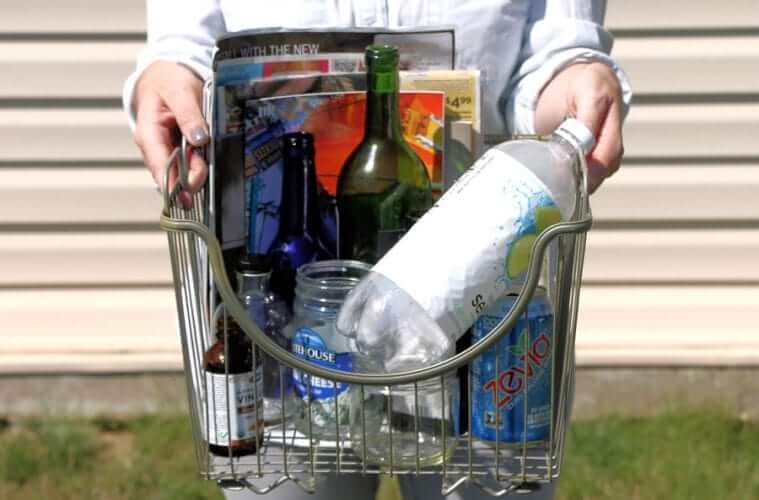
7 Tips and Tricks to Simplify Recycling
Recycling is a way we can all do our part to help keep the earth clean! It helps to conserve natural resources and energy, reduces landfill waste, cuts climate-changing carbon emissions and protects wildlife. But have you ever been confused about what can actually go in the bin? Cut through the confusion with our 7 Tips & Tricks to Simplify Recycling!Byline: BTB Editor
October 25, 2024 / Time to read: 5 minBy Heather LaCorte, founding editor of Better Living
There’s no denying that recycling is an earth-friendly habit that can help keep our environment clean, conserve natural resources, and cut down on pollution while benefiting the economy. And it’s important we all do our part. But, are you
If you’ve ever been unsure about what belongs — and
1. Don’t Be a “Wish-cycler”
If you take a peek at your closet, you'll probably find at least a few things you're willing to part with. But do you ever get that icky feeling when you put something that looks perfectly good in the trash? Sure, you haven’t used it in 12 years, but does it really belong in the landfill? Don’t think of throwing it in the recycling bin to ease your guilt. The recycling gods won’t descend and turn all of your old belongings into something recyclable. It’s not going to happen. And while done with the best intentions, this counterproductive recycling habit can delay sorting at recycling facilities and clog machinery. Items like garden hoses, old tangled
2. Don’t Recycle Anything Smaller Than a Credit Card
In the quest to be a recycling guru, you may be tempted to recycle every little thing you can. But, small pieces like bottle caps, shredded or tiny pieces of paper and can tabs can get stuck in recycling processing machines. When in doubt, do the credit card test. If an item is smaller than a credit card, toss it in the trash.
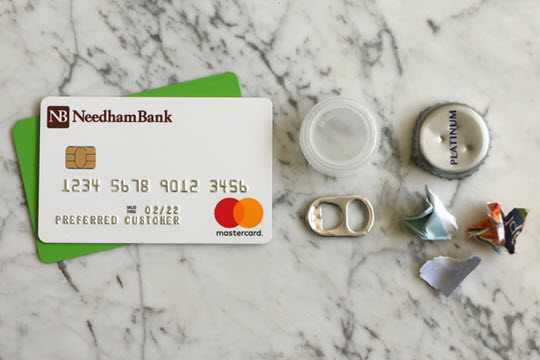
3. Keep Things Loose! Don’t Ever Bag Recyclables
Bagging recyclables poses challenges at the sorting facility, especially if the bags aren’t recyclable themselves. Keep recyclables loose unless instructed otherwise by your local recycling company. The only exception to this rule is shredded paper, which can be contained within a paper bag.
4. Empty, Clean and Dry! Let That Be Your Recycling Motto
In many households, food and drink containers account for the majority of what ends up in the recycle bin. But did you know that putting just one food-covered container in the recycle bin can contaminate an entire truckload of recyclables? So don’t toss dirty bottles of leftover ketchup or sticky peanut butter jars into the recycling bin. Ask yourself if it’s empty, clean and dry. And when in doubt, throw it out.
5. Here’s What You Can and Can’t Recycle
✔ Paper!
✔ Cardboard!
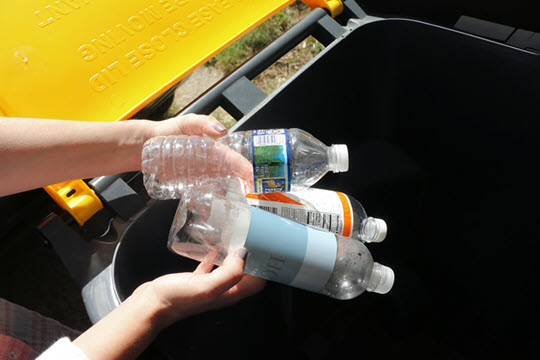
✔ Plastic bottles and jugs!
✔ Aluminum soda cans, tin cans and aluminum foil (unspoiled)!
Soda cans, as well as soup, tuna and bean cans, are recyclable. Again, just make sure they’re empty, clean and dry! Give them a rinse and tip them over to drain before tossing in the recycle bin.
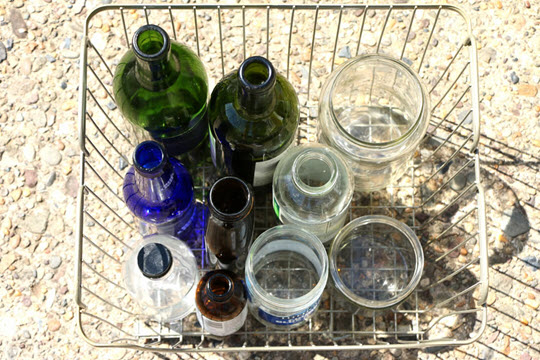
Glass? It depends…
While
✖ No batteries or electronics
Learn more about proper
✖ No food or food-contaminated items of any kind
✖ No foam
✖ No single-use utensils, paper plates, napkins or paper towels
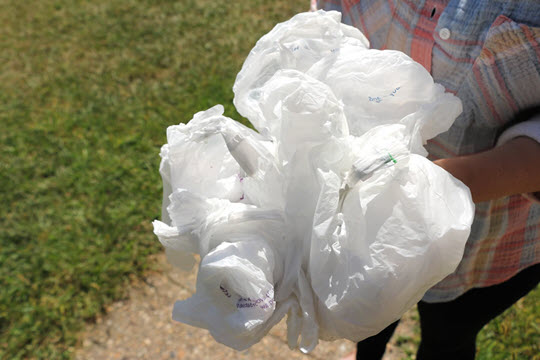
✖ No plastic sandwich bags, plastic wrap, or plastic grocery bags
✖ No clothing or shoes
6. Give Your Recycling Bin the Sniff Test
If you open the lid of your recycling bin and it makes you wrinkle your nose, it’s time to give it a rinse. Foul odors are usually from throwing food-contaminated items in your bin, the remnants of which can continue to contaminate your recyclables. For sticky residues, you may need to give it a good scrub with dish detergent. Always turn it over to thoroughly drip dry before filling with recyclables.
7. Reduce, Reuse and Then Recycle! Learn Ways to Reduce Waste
There’s no denying that recycling is an amazing thing. But it’s also important for all of us to find ways to reduce the waste we create in the first place. Small changes can make a big difference over time, reducing our individual footprint on the environment.
Here are a few easy changes you can make to reduce the amount of waste in your home:
- Pass on plastic bags! Bring reusable tote bags when shopping for groceries or other items.
- Get a portable reusable water bottle (stainless steel is great!)
- Bring lunch to work in reusable food containers.
- Start meal planning to reduce waste from takeout.
- Reuse food jars (they're great for freezing soups and sauces)
- Donate or repair items instead of throwing them away.
- Visit
recyclingsimplified.com for more tips.
Sustainable Living is the Future! Start Educating Kids Early About the Importance of Recycling
When it comes to recycling, we all have to do our part. That means getting our kids involved and teaching them about the importance of recycling and how to do it. Republic Services launched the
For teachers or parents, the
Visit
Heather LaCorte is a founding editor and contributing writer for
